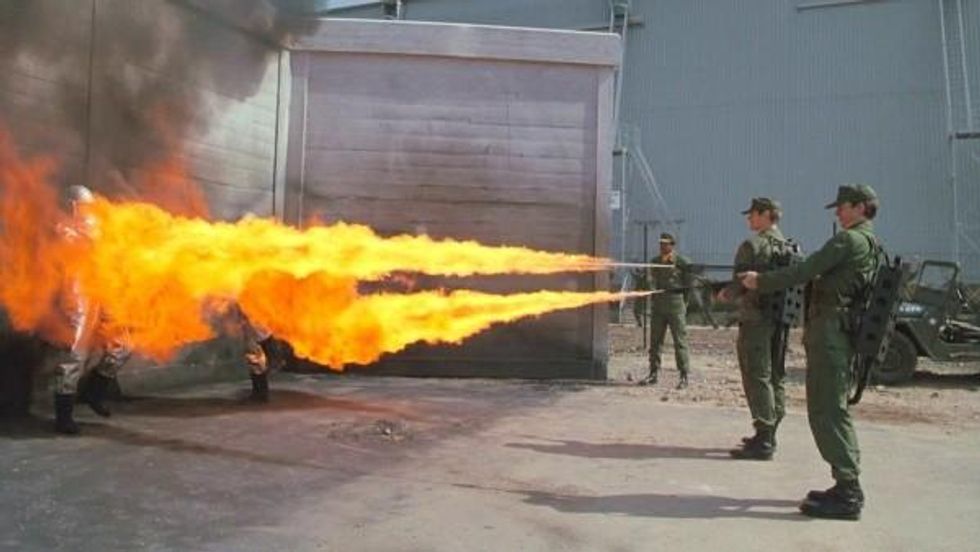So here we are in a record-breaking "polar vortex" with Florida's Everglades going on a freeze watch and Minnesota
registering wind chills of -60 degrees Fahrenheit. This most extreme of weather systems, which should warm the hearts of climate deniers, may in fact turn out to be
climate-change related (thanks to a melting
Arctic warming twice as fast as the rest of the planet). Meanwhile, halfway around the world, Australia has been experiencing a staggering heat wave, having just emerged from a year that included the
hottest day, week, month, and
overall average on record for that continent.
Still, give the climate deniers their due. They have long claimed that climate science is, at best, a mistake-prone activity. It's a point with which Professor Steven Sherwood concurs. He happens to be the lead author of a study that just appeared in the journal Nature, focused on future cloud cover and climate change. It concluded that the planet will heat up faster than expected, minimally rising by 4 degrees Celsius by 2100 (which, of course, would spell unimaginable catastrophe). Here's his way of giving the deniers their due: "Climate skeptics like to criticize climate models for getting things wrong, and we are the first to admit they are not perfect, but what we are finding is that the mistakes are being made by those models which predict less warming, not those that predict more."
The year just past was generally a humdrum one in the new age of climate change. Though final results won't be in until March, it will be among the top ten warmest years since temperatures were first recorded, falling somewhere between fourth and seventh. (By the way, the 10 hottest years have all occurred since 1998, nine in the last decade). For the first time in history, the planet briefly and ominously topped 400 parts per million of atmospheric CO2; oceans grew more acidic; droughts and wildfires strengthened; storms raged, though only one reached epic proportions, Typhoon Haiyan in the Philippines; Arctic summer sea ice had a major melt (significantly above twentieth century levels, but less than in 2012); climate change media coverage rose modestly for the first time in years; and one of the climate-denial movement's most beloved supports -- the supposed "warming pause" the planet was undergoing -- went down the drain.
Meanwhile, predictions are starting to come in suggesting that -- if an El Nino phenomenon develops in the Pacific Ocean, as some scientists believe -- 2014 could be one for the record books.
As the year begins, we know more about what's in our future with somewhat greater certainty and, generally speaking, as record amounts of carbon dioxide continue to pour into the atmosphere, we're doing remarkably little about it. To adapt that classic example of free speech limits, imagine that a vast crew of scientists is now continually yelling "Fire!" in the global movie theater and, as a result, more pyromaniacs with blowtorches are arriving all the time. After all, of those doing nothing about climate change, no one is doing more of it than the giant oil companies and the nations -- from Saudi Arabia to Russia -- that are in essence giant oil companies.
As Michael Klare indicates in his latest post--"Peak Oil Is Dead - Long Live Peak Oil!"--the urge of the oil giants and their supporters to claim that there are no limits on the future of oil and natural gas extraction is, to say the least, chilling on a heating planet. They seem intent on giving the phrase "the sky's the limit" grim new meaning. Fortunately, as TomDispatch's resident energy expert points out, they may be in for a surprise or two themselves down the road.




